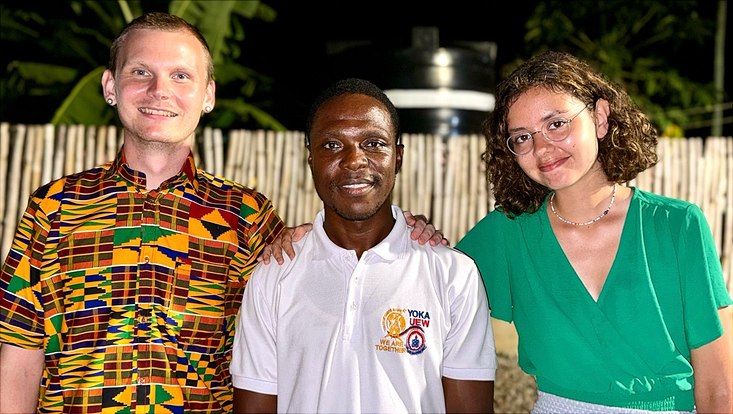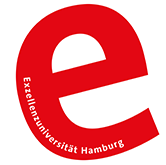New funding round in the Fast-Track Program for studentsStatistically or Socially—How Do Infants Learn?
30 January 2024, by Marie Schlicht

Photo: Private
The Fast-Track Program at Universität Hamburg—University of Excellence has made it possible for the psychology student Paul Gallenkemper to start with his doctoral research immediately following his bachelor’s. The program is open to outstanding students in many faculties. Currently, there is new application round.
Mr. Gallenkemper, how did you find out about the Fast-Track Program?
Prof. Ulf Liszkowski, who heads the Developmental Psychology research area at Universität Hamburg and who oversaw my bachelor’s thesis, recommended the program to me. I am happy about this opportunity, even if it means a huge leap from the bachelor’s to the program and I have to now complete my master’s and doctorate at the same time. Thanks to the monthly funding of €1,468, I do not have to work on the side for the next 2 years. This means I have a lot of time early on in my academic career to focus on my topic.
What do you want to find out during your doctoral studies?
I am conducting a comparison of 2 learning theories that have been intensively researched in the past several years but rarely been weighed over and against each other. The first theory is called statistical learning. Researchers have already shown that infants independently perceive and understand regularities and patterns in their environment from birth onward. However, they also learn—right from birth—in communicative contexts, meaning when adults interact with them. The theory of natural pedagogy sees this as the most efficient way to learn. I want to find out how these 2 approaches interact and whether both have the same impact in different developmental phases.
How can you test that?
I will do that primarily on the basis of visual stimuli. To do this, I am planning to show toddlers, for example, a presentation in which an object appears at one of 2 places. The presentation will be shown several times consecutively. The appearance of the object will be indicated to some children communicatively, but not to others. So one group has to independently recognize statistical regularities, while the other will also be provided with a communicative context. To evaluate the differences afterwards, I will record the searching gaze or anticipatory looking towards the place at which the object should appear.
Moreover, I want to study how the infants process stimuli in order to draw conclusions about how both learning mechanisms lead to the infants’ anticipatory looking. To do so, I will continuously measure the infants’ pupils and brainwaves through the presentations.
What do you want to achieve with this comparison?
I would like to find out which mechanism babies use more often from birth. I will repeat the tasks over a longer period of time so that I can observe possible changes in the toddlers’ development. Then I can hopefully say which learning mechanism is stronger at which developmental stage. Regardless of the exact trials that I ultimately conduct, I will work with up to 200 infants. At the end, I will be able to evaluate maybe 100 cases—you can imagine that babies are not the most reliable test subjects.
What inspires you about science especially? That is, why have you decided to pursue a career in this field?
I like to focus intensively on a topic, ask my own questions, and answer them. Originally, I started off with a bachelor’s in the nanosciences—and I already found research there especially exciting. Yet I noticed then that I would prefer to work with people and I decided on psychology.
Now I am in the lab a lot but the field of infant research is simply a really special challenge. It is an unbelievably rich field because the groundwork for the rest of our lives is laid in childhood. But you cannot just ask or instruct babies like you do with adult test subjects. That makes everything very exciting.
When I started by psychology studies, I wanted to become a therapist and I don’t want to rule that out for later. But right now I want to focus entirely on research and get going with my doctorate.
Fast-Track Program
The Fast-Track Program shortens master’s and doctoral studies by one year. In addition to funding, there is a subsidiary program to provide further qualifications and networking opportunities organized by the Hamburg Research Academy.
It began in fall 2020 as a pilot project in the Faculty of Mathematics, Informatics and Natural Sciences. It is now open to students in other faculties. Starting in April 2024, students can apply for the next round of funding. On 19 February 2024, there will be an information session on the program. There is also more information about the Fast-Track Program on the Hamburg Research Academy’s updated website.
The application conditions vary from faculty to faculty. In Humanities and Education, for example, students have to have earned a final grade of “excellent” for their bachelor’s while in the Faculty of Mathematics, Informatics and Natural Sciences the requirements vary from degree program to degree program.



